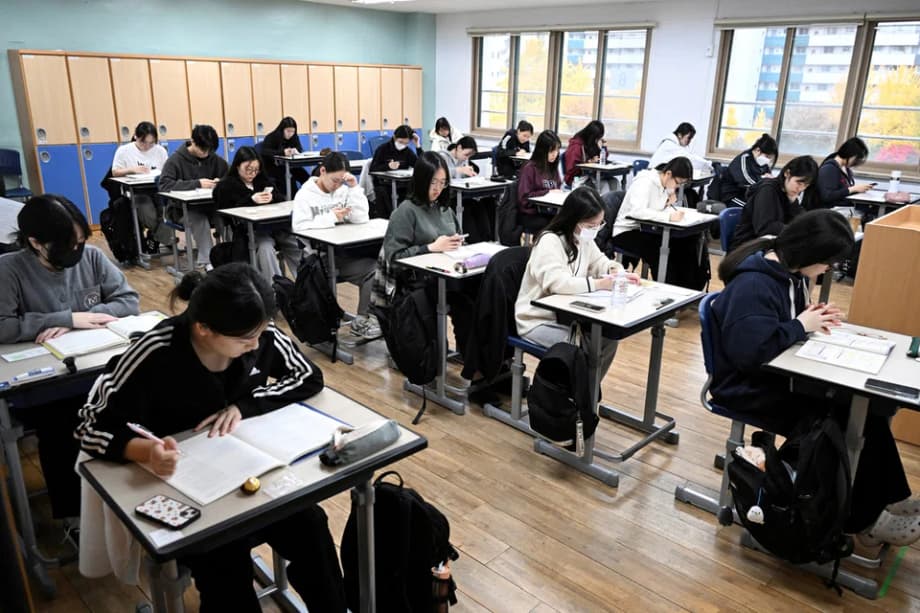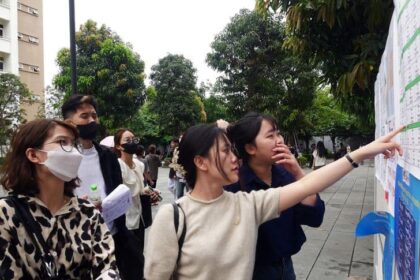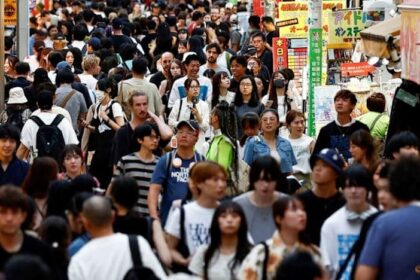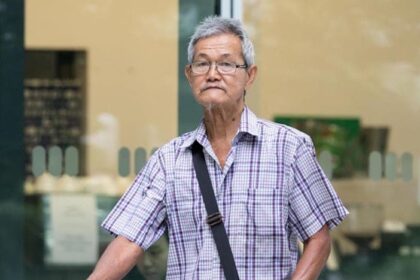A new era for college admissions in Korea
College admission has long been a high stakes milestone in South Korea. Entry into a top campus can shape a career, open doors to stable work, and confer social status. A sweeping change is now redefining who gets in. Major national universities have begun rejecting applicants who carry records of school violence, a shift that places character and campus safety alongside grades and test scores.
According to data compiled by the office of Rep. Kang Kyung-sook, six of the nation’s ten flagship national universities declined admission to 45 applicants in the 2025 intake because of documented school violence. That total included two applicants to Seoul National University and 22 to Kyungpook National University, which introduced one of the toughest methods to quantify disciplinary history. Pusan National University denied eight applicants, Kangwon National University and Jeonbuk National University each denied five, and Gyeongsang National University denied three. Every university in the country will be required to reflect school violence records starting in 2026, so this year’s results are a preview of what is coming.
Several prominent institutions moved early for the 2025 cycle. Seoul National University, Korea University, Hanyang University, and other campuses began to weigh school records of violence in their screenings. Teacher training colleges are going even further. Ten national universities of education, including Seoul National University of Education, Busan National University of Education, and Gyeongin National University of Education, have announced that any record of school violence will lead to automatic disqualification from next year, regardless of severity. Medical colleges and other teacher training programs are reviewing similar rules.
Where rejections occurred
- Seoul National University: 2 rejections
- Kyungpook National University: 22 rejections
- Pusan National University: 8 rejections
- Kangwon National University: 5 rejections
- Jeonbuk National University: 5 rejections
- Gyeongsang National University: 3 rejections
What the rules say and how they work
South Korea classifies school violence sanctions on a nine level scale, ranging from a written apology at the lightest level to expulsion at the most severe. In past years, schools often tried to resolve conflicts quietly. Teachers mediated, parents urged reconciliation, and many incidents never left the classroom. That approach is changing. Records beginning at the more serious levels must now be written into a student’s official record, and admissions officers can review those entries. Many entries remain on official documents for up to two years after graduation, and expulsion cases are permanent.
Universities decide how heavily to weigh those sanctions. Kyungpook National University has adopted a point based system that applies to every admissions track. The school deducts 10 points for Levels 1 to 3, 50 points for Levels 4 to 7, and 150 points for Level 8 or Level 9 cases that involve school transfer or expulsion. The policy covers academic excellence, local talent, essay based, performance and athletic talent tracks, and the regular intake. The 22 rejected applicants there could not overcome the deductions.
In explaining its approach, Kyungpook framed the change as a matter of values and trust in the university community.
Kyungpook National University said: “This is not just personal misconduct. School violence is a breach of social trust. We believe universities have a responsibility to uphold community values.”
Other campuses that are introducing penalties or disqualification criteria are using similar language about the rights of victims, the need for safe classrooms, and the expectation that applicants take responsibility for past conduct.
Why Korea is tightening discipline
Public attention to bullying has intensified over the past decade. Reports of student suicides tied to abuse, the spread of digital harassment, and a series of high profile allegations involving celebrities and public figures all put pressure on schools to act. Popular culture added fuel. A widely watched drama about a survivor of school bullying kept the issue in the national conversation. In 2023, a senior policing appointment was withdrawn after it emerged his son had bullied a classmate and still won admission to a top university with a small score deduction. That episode sparked criticism of lenient systems and prompted a government review.
Policy makers responded by setting nationwide expectations. The education ministry and the Korean Council for University Education set a requirement that every university reflect school violence records starting in 2026. Plans endorsed this year go further by scheduling a broader application of those records across all admissions tracks beginning in 2028.
An admissions officer at a national university said the current cycle represents only the first step in a broader shift in standards.
The admissions officer said: “This is just the beginning. The bar is rising and school violence aggressors are expected to take more responsibility.”
Teachers say the cultural understanding of bullying has also changed. What was once dismissed as a private dispute between classmates is now treated as a violation of rights that can have lasting effects.
Kim, a high school teacher in Seoul, said: “School violence used to be regarded as a personal conflict. Now it is treated as a violation of basic rights, and society is demanding long term accountability.”
Kim added that the long shadow of bullying should not be underestimated.
Kim said: “School bullying victims say their experiences affected them for a lifetime. School bullies should know their behavior in school may follow them into adulthood, and admissions officers are watching.”
Which campuses and tracks are affected right now
The impact in 2025 varies by campus. Some national universities did not reject any applicants this year because they reflected school violence records only in limited cases, such as student athlete admissions. Others applied deductions across most or all tracks. Lawmakers have asked universities to publish clear criteria so that applicants understand how sanctions are weighed and how appeals work.
Teacher colleges take the hardest line
Teacher training colleges have moved to bright line rules. Ten national universities of education say any record of school violence will block admission starting next year. The goal is to ensure that future teachers meet a high standard of conduct in both school and community. Several medical colleges and other teacher training programs are studying similar approaches, citing patient and classroom safety.
How admissions work in Korea
Korean universities split intake between early admissions and regular admissions. Early admissions weigh school records, teacher recommendations, interviews, extracurriculars, and essays. Regular admissions focus mainly on the College Scholastic Ability Test, the national exam known as the CSAT. Up to now, conduct and discipline mattered most in early rounds, and much less in the CSAT focused intake.
The policy shift brings character into every corner of the process. From 2026, every campus must factor disciplinary history in some way. A plan announced by the Korean Council for University Education sets 2028 as the year when school violence records will be reflected in all admissions tracks, including essay based and performance based rounds, and the regular CSAT centered intake. Universities must release detailed admissions plans in advance so families can see whether records lead to disqualification, point deductions, or qualitative ratings.
Supporters, critics, and a growing legal fight
Many educators and parents of victims welcome the tougher stance. They argue that it sets a clear standard, protects students, and aligns campus life with community expectations. University leaders who have adopted stronger rules say the change is about trust, not just punishment.
There are concerns as well. Parents, counselors, and some civil liberties advocates question whether a single sanction can overshadow academic merit or genuine efforts to make amends. They warn about uneven enforcement between schools and the risk that vague incidents might be escalated to formal sanctions without consistent due process. Still others worry that a record that remains after graduation could narrow opportunities beyond college.
Schools report more disputes and administrative lawsuits as students challenge disciplinary decisions. Families increasingly hire attorneys during school proceedings, and teachers say a courtroom mindset is making it harder to resolve conflicts in classrooms. Universities and the education ministry will be pressed to balance deterrence with rehabilitation, and to provide clear guidance on appeals, record retention, and what counts as improvement.
What students and families can do now
Students, parents, and educators can prepare for the new rules by focusing on process, documentation, and support. The aim is both prevention and fair review.
- Learn how the nine level sanction system works, and which levels are recorded on the official student record that admissions officers can see.
- Ask schools for written procedures, timelines, and appeal options as soon as an incident is reported. Keep copies of all correspondence and decisions.
- Engage in counseling, special education, or restorative programs when offered. Documentation of participation and progress can be considered in qualitative reviews.
- Maintain records of positive behavior, service, and leadership. Universities that use qualitative assessments can weigh growth alongside sanctions.
- If you plan to apply to teacher training colleges, be aware that any record may lead to disqualification next year, regardless of severity.
- Victims and families should make use of protection measures and support services at the school and district level, including no contact orders and counseling.
The Bottom Line
- Six of ten flagship national universities rejected 45 applicants in 2025 due to school violence records.
- Kyungpook National University applied strict point deductions and denied 22 applicants across multiple tracks.
- All universities in South Korea must reflect school violence records starting in 2026.
- Teacher training colleges will disqualify applicants with any school violence record beginning next year.
- Sanctions range from a written apology to expulsion, and many entries remain on records after graduation, with expulsion cases permanent.
- Plans call for school violence records to be reflected in all admissions tracks by 2028.
- Supporters cite student safety and accountability, while critics warn about fairness, consistency, and the chance for rehabilitation.
- Schools are seeing more appeals and lawsuits, adding pressure for clear standards and due process.












